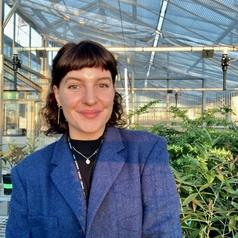
Rebecca Degnan
PhD Candidate in Molecular Biology and Plant Pathology, The University of Queensland
I am a current PhD candidate in Molecular Plant Pathology at the University of Queensland, with my thesis focussing on RNA interference-mediated control and exploration of rust fungi. I have an Honours (Class I, Valedictorian) in Molecular Cell Biology, and a Bachelor of Science majoring in Plant Science and Genetics.
I have worked for more than 4 years as a research assistant in Molecular Biology, Plant Pathology, and Forest Pathology. I also have several years of experience as a teaching assistant in Genetics, Plant Biotechnology, and Plant Pathology.
I have published multiple peer-reviewed papers, spoken at conferences both within Australia and internationally, and participated in science communication and outreach through guest seminars and professional committee roles.
Less ![]()
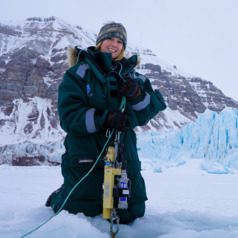
Rebecca Duncan
PhD Candidate in Polar Marine Ecology and Climate Change, University of Technology Sydney
I am a final year PhD candidate with University Technology Sydney and UNIS Svalbard (Arctic Norway) and my research interest is the biological implications of sea ice decline and climate change in the polar regions, in both terrestrial and marine environments. I have spent 7 years working in the high Arctic, undertaking remote fieldwork on the frozen ocean. I have produced six first author publications in high quality scientific journals, and co-authored two books on polar fieldwork. I am a passionate advocate for women and diversity in science and have presented at many international conferences and seminars, including on the topic of barriers to participation for women in polar science. I have a Masters of Environmental Science, a Bachelor of Science and a Bachelor of Arts. In addition to conducting my research, I am employed as a guest lecturer and academic teaching staff.
Less ![]()
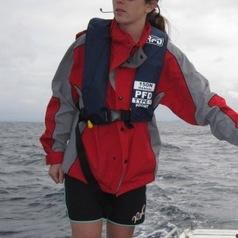
Rebecca Dunlop
Senior Lecturer in Physiology, The University of Queensland
I am a lecturer in physiology at the School of Veterinary Science, University of Queensland. Originally from Ireland, I obtained my BSc (Honours) degree in Environmental Biology and my PhD in fish neuroethology from The Queen’s University of Belfast. I then moved to Australia and completed a post-doc in humpback whale social communication.
Less ![]()
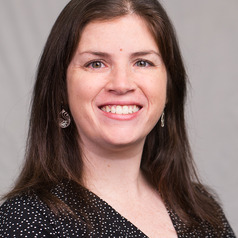
Rebecca Dyer
Visiting Assistant Professor of Psychology, Hamilton College
Rebecca Dyer is a Visiting Assistant Professor in the Psychology Department at Hamilton College and specializes in social and moral psychology. Her research examines the motivational, emotional, and cognitive mechanisms underlying moral judgment and behavior. She is also interested in motivation and goal pursuit more broadly, emotion, and self-regulation.
Before arriving at Hamilton, Rebecca taught at Colgate University, and she has also been a postdoctoral associate at Cornell University. Dyer earned her doctorate from Yale University and her Bachelor of Arts degree from Haverford College.
Less ![]()
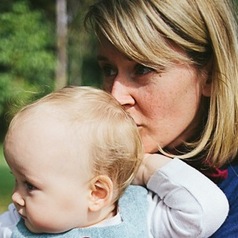
Rebecca English
Lecturer in Education, Queensland University of Technology
Rebecca English teaches in the School of Curriculum in the Faculty of Education at QUT. She was a teacher in both the Catholic Education and Education Queensland sectors for seven years. She holds a PhD from Griffith University.
Less ![]()
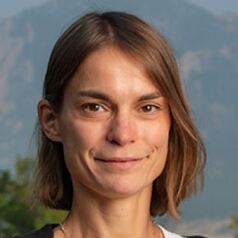
Rebecca Flowers
Professor of Geological Sciences, University of Colorado Boulder
Rebecca Flowers is a professor of geological sciences at the University of Colorado Boulder. Dr. Flowers uses thermochronology, geochronology, and geologic observations to address problems in continental tectonics and mantle dynamics, with particular focus on understanding the coupling of deeper Earth and surface processes over extended (10s-100s Ma) timescales. Her (U-Th)/He geochronology lab also emphasizes the development and refinement of both conventional (e.g., apatite, zircon, titanite) and novel (e.g., conodonts, rutile, garnet) He thermochronometers. She is especially interested in creative, collaborative applications of (U-Th)/He data to problems in fields in which the technique has not typically been utilized. For example, her group has dated lunar zircon to constrain the impact history of the Moon, dated perovskite to determine the timing of kimberlite emplacement, and dated conodonts in an effort to decipher the thermal history of shales.
Less ![]()

Rebecca Foster
Lecturer in Criminology, Edinburgh Napier University
Rebecca joined the School of Applied Sciences at Edinburgh Napier University (ENU) as a Lecturer in Criminology in September 2022. Prior to joining ENU, she worked as a Research Fellow at the University of Stirling, based in the Salvation Army Centre for Addiction Services and Research (within Social Sciences). In that role, she was primarily involved in leading and supporting research projects relating to problem substance use. Funders for these projects included the National Institute for Health Research, and the Scottish Government/Drug Deaths Taskforce. Before that, she worked as a social researcher in the Scottish Government in the crime research team.
While her research interests are varied, inequality and marginalisation and the manifestations and experiences of these, are common themes. Rebecca is particularly interested in the lived experience of the criminal justice system (especially prison), problem substance use and homelessness. Methodologically, she is particularly interested in qualitative research, creative methods, ethnographic approaches and peer research.
Rebecca holds a PhD in Criminology from the University of Glasgow. She also holds an MSc in Criminology and Criminal Justice, and LLB (Hons) (First Class), both from the University of Edinburgh.
Less ![]()
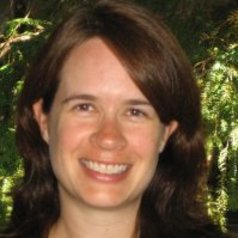
Rebecca Garland
Rebecca is an atmospheric chemist employed by CSIR since 2011, and has worked in the field of atmospheric science for 15 years. She is a senior researcher in the Climate Studies, Modelling and Environmental Health Research Group, where she is the leader on the group for Regional Air Quality Modelling and Environmental Health. Her research focus includes atmospheric chemistry and climate change, their linkages, and the resultant health impacts from poor air quality and a changing climate.
Less ![]()
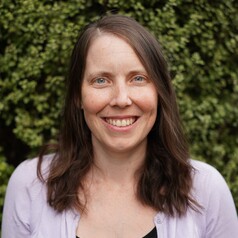
Rebecca Gladstone-Gallagher
Lecturer in Marine Science, University of Auckland, Waipapa Taumata Rau
Dr Rebecca Gladstone-Gallagher is a Lecturer in Marine Science at the University of Auckland. Dr Gladstone-Gallagher is a marine ecologist investigating degradation, recovery, and restoration in coastal marine ecosystems. She is particularly interested in the connections and interactions between the biodiversity and how the ecosystem functions. These connections and interactions are key to how ecosystems respond to human made stress and she uses this ecology to develop frameworks and recommendations to assist environmental management decisions.
Dr Gladstone-Gallagher obtained her PhD (Biological Sciences) from the University of Waikato, has over ten years of experience in marine ecology research, and is an active contributor to the peer reviewed scientific literature.
Less ![]()
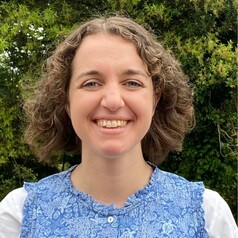
Rebecca Haboucha
Postdoctoral Research Fellow in Anthropology, SOAS, University of London
I am a Critical Heritage Studies scholar with a disciplinary background in Archaeology and Anthropology. My PhD research focused on Indigenous perceptions of the impacts of climate change on their heritage. I have expertise in intangible heritage, ciritical heritage studies, ethnographic study, cultural heritage law, food studies, and indigenous studies.
I am now a British Academy Postdoctoral Fellow in the Department of Anthropology and Sociology at SOAS looking at the influence of the popularisation of Israeli cuisine on Jewish diasporic foodways, and, in particular, the effects this has had on the inclusion on Jews of MENA descent living in the diaspora.
Less ![]()
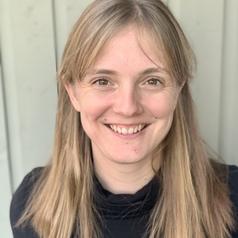
Rebecca Hall
Assistant Professor, Global Development Studies, Queen's University, Ontario
Dr. Rebecca Hall is an Assistant Professor of the Political Economy of Resource Extraction and Development in the Department of Global Development Studies at Queen’s University. As a feminist political economist concerned with social justice, her research examines how land and resources are accessed, organized, and extracted from, and how people work, care and reproduce upon this land. Her research has explored the gendered dynamics of resource extraction in Canada; social reproduction and caring labours; ongoing processes of settler colonialism; and gender violence. Her 2022 book, Refracted Economies: Diamond Mining and Social Reproduction in the North (University of Toronto Press), examines the gendered dynamics of diamond mining in the Northwest Territories, Canada.
Rebecca's current research examines community experiences of mine closure and aspirations for "post-extractive futures". She is pursuing this research as a co-lead of "We Will Not Be Banned From Our Land", a research network led by Dedats'aatsaa: Tlicho Research and Training Network. She has also partnered with the Yellowknives Dene First Nation and Ecology North in facilitating community talking circles on mine closure.
Rebecca earned her MA and PhD in Political Science from York University.
Less ![]()
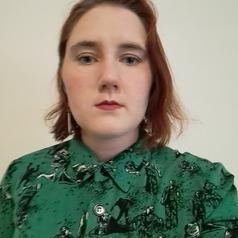
Rebecca Houlihan
PhD Candidate in History, Monash University
Rebecca Houlihan is a current PhD candidate at Monash University. Her PhD looks at the social and cultural history of the internet in Australia from 1989-2010.
Less ![]()
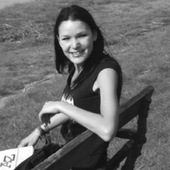
Rebecca Hutcheon
Research Fellow at the Faculty of Business and Creative Industries, University of South Wales
Less ![]()
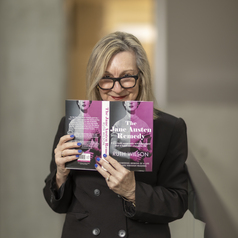
Rebecca Johinke
Associate professor, English, University of Sydney
Rebecca Johinke is an Associate Professor and Chair of the the Discipline of English and Writing in the University of Sydney. She has a long-term interest in Gender Studies and Popular Culture as it intersects with Literary and Film Studies. Her interests include writing and rhetoric (creative nonfiction, print and digital magazines), Australian film and popular culture (including popular music), and street narratives (from masculine car cultures to street cultures more generally), and she has a specific interest in walking narratives. She also conducts research about the Scholarship of Teaching and Learning (assessment and feedback, student support, and the first year experience). Her most recent journal articles have appeared in The Journal of Popular Culture, Journalism Studies, Journal of the European Association for Studies of Australia, and Assessment and Evaluation in Higher Education.
Less ![]()
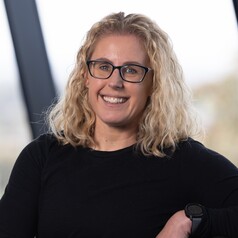
Rebecca Leech
NHMRC Emerging Leadership Fellow, School of Exercise and Nutrition Sciences, Deakin University
Dr Rebecca Leech is a Registered Nutritionist (RNutr.) and Nutritional Epidemiologist. She has a PhD in Nutritional Epidemiology, and in 2018, was awarded an Alfred Deakin Medal for her doctoral thesis, which examined adults’ eating patterns and their relationships with overall diet quality and markers of cardiometabolic health. Eating patterns describe the timing, frequency, and food content of eating occasions, which includes meals and snacks. Her current research applies novel analysis techniques and assessment methods to understand the contextual determinants of eating patterns. Rebecca's research intends to inform the development of strategies for healthy eating that are context-specific and tailored to everyday situations.
Since the award of her PhD in 2018 Rebecca has held three consecutive fellowships and has received over $673k in research funding (National Heart Foundation; National Health & Medical Research Council) as lead investigator. In 2019, she was a Finalist for the Premier's Award for Health and Medical Research (Public Health Category). Between 2018 and 2021 she was the Chair of Student Mentoring for the Nutrition Society of Australia. Rebecca also has a master's degree in clinical epidemiology and was a secondary teacher of German and Science before pursuing a career in nutrition research.
Less ![]()
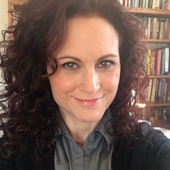
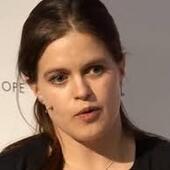
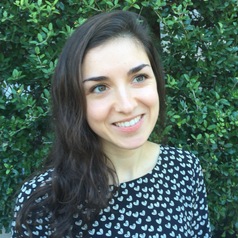
Rebecca Macmillan
Rebecca Macmillan is a Ph.D. Candidate in the Department of English at the University of Texas at Austin, and currently the Assistant Editor of Texas Studies in Literature and Language. Her dissertation looks at contemporary poetry projects that incorporate visual materials and employ archival strategies to document ordinary forms of present-day crisis. Her broader research and teaching interests include: poetry and poetics, theories of the archive, photography, feminist and affect studies, and memoir.
Less ![]()
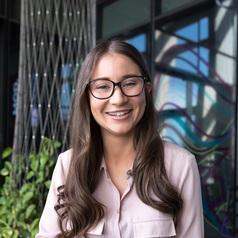
Rebecca Marrone
Lecturer Learning Sciences and Development, The Centre for Change and Complexity in Learning (C3L), Education Futures, University of South Australia
First class Honours in Psychology (graduated 2016)
PhD in STEM (graduated 2020)
Less ![]()
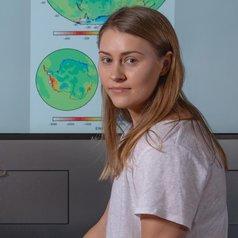
Rebecca McGirr
Postdoctoral research fellow, Australian National University
My current research involves using satellite gravity data to measure the temporal and spatial variations of the solid Earth and it’s fluid envelope. I have particular interest in using space gravity analysis, along with other geodetic techniques, to measure changes in the mass balance of polar ice caps and glaciers, and how their decreasing volume is contributing to global sea level rise.
Less ![]()
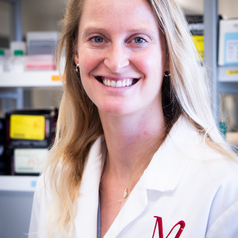
Rebecca McKenzie
Senior Specialist in Molecular Biology, Malaghan Institute of Medical Research
I entered into the world of molecular science in 2010 completing a BSc(Hons) in Microbiology and Immunology at the University of Otago. Here I fell into the world of CRISPR-Cas an adaptive bacterial immune system that has now taken the world by storm with its abilities to edit the human genome completing my honours degree in the lab of Peter FIneran. Through this topic I made my way to Delft University of Technology to work as a research assistant and then complete my PhD degree also focussed on the topic of CRISPR-Cas immunity and the interaction between viruses and bacteria on a single cell level. On completion of my PhD I returned to New Zealand and had the desire to apply my skills in research and communication to a topic in science directly contributing to the better health of others and as a result I accepted the exciting position at the Malaghan Institute as a postdoc on setting up an RNA vaccine and therapeutic pipeline.
Less ![]()

Rebecca McLaughlan
Senior Lecturer in Professional Practice and Architectural Design, University of Sydney
Dr Rebecca McLaughlan is a Senior Lecturer at the University of Sydney and a Registered Architect, currently serving as the Academic Member on the New South Wales Architects Registration Board. Rebecca’s research explores the ways that architecture embodies care by examining lived experiences and perceptions of the built environment; and the processes through which architects create environments capable of extending care through their contributions to end user wellbeing. She recently completed an ARC DECRA Fellowship examining the ways the built environment can support experiences of palliative care for patients, families and staff.
Less ![]()

Rebecca Mead
Senior Research Associate in Public Health Policy, Lancaster University
I am committed to generating high quality practical knowledge to support disadvantaged communities of place and interest to become equal partners in action to reduce the social inequalities driving health inequalities.
I am a member of the research team conducting a longitudinal evaluation of Big Local, the largest community empowerment programme implemented in England (https://communitiesincontrol.uk), which is revealing the pathways through which communities of place develop the capabilities they need to have collective control over decisions and actions that impact on their lives and health.
As a member of the NIHR School for Public Health Research (NIHR SPHR) I contribute to several projects in the Places and Communities Programme evaluating efficient and effective strategies for investing scarce resources in local place-centred public health. I was also recently awarded funding to explore local emergency responses to the covid-19 pandemic in relation to existing social and health inequalities.
My doctoral research focussed on the implementation of public health policy aspirations relating to improving population health and reducing social inequality in health as an aspect of the work of local public sector partnerships. Since completing my PhD I have developed my research skills on a wide range of proejcts using participatory research and evaluation methods with communities of place and interest to support public health action.
Less ![]()
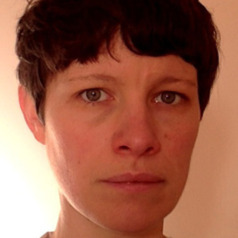
Rebecca Palmer
Associate Lecturer in Illustration, Anglia Ruskin University
Becky Palmer is a practitioner-researcher in the area of illustration and visual narrative.
An illustrator and author of comics and picture books, Becky's doctoral work focuses on the relationship between the two forms, and what we can learn about each from the attempt to combine them in practice.
Since then, a collaboration with Dr Francesca Cavallerio at Anglia Ruskin University has taken her research interests in the direction of Creative Non-Fiction, and the contributions that drawing can make to collecting data as well as communicating findings to audiences outside the academy. More information on this work can be found here:
http://beckypalmer.co.uk/research-collaboration/
Her first graphic novel was published in France by Éditions Sarbacane. In the UK, she has been commissioned by Walker Books and NoBrow.
Less ![]()
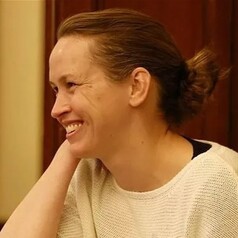
Rebecca Paxton
Doctoral student, University of Adelaide
Rebecca is a PhD student in science and technology studies at the University of Adelaide, where she studies public and scientific perceptions of the development and potential use of gene drives for pest control and conservation. She has previously conducted research on community decision making and perspectives about the use of gene editing technologies in food production and human health, and preferences regarding animal welfare in livestock industries. She has a long-standing interest in multifunctional food and farming systems research, as well as in hazard and disaster management.
Less ![]()
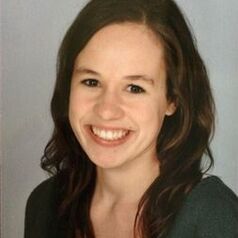
Rebecca Peters
PhD candidate in Environmental Systems Analysis, Faculty of Mathematics and Natural Sciences, University of Tübingen
Less ![]()
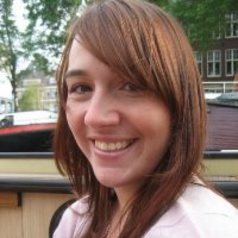
Rebecca Rebecca Reilly-Coope
I am a Lecturer in Political Theory at the University of Warwick. Prior to this, I taught Political Theory at the University of Oxford, and before that, taught for several years at the University of Manchester.
I have a PhD in Political Theory from the University of Manchester. My doctoral research was concerned with moral psychology and the role played by emotion and sentiment in public reason and the construction of morality, but since then I have become more radical in both my thinking and my activism. I am now especially interested in the challenge posed to class based liberation movements by the shift towards identity politics, and in particular the implications of this for feminist theory and practice. I have written extensively about the nature of sex, gender and identity, and am currently in the process of completing a book on the subject, entitled “The Politics of Gender Identity: A Feminist Critique”, to be published by Palgrave in late 2016.
Less ![]()
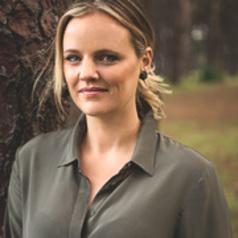
Rebecca Reynolds
Adjunct lecturer and nutritionist, UNSW Sydney
〰️ Registered Nutritionist with the Nutrition Society of Australia & Adjunct Lecturer @ the School of Population Health, Faculty of Medicine, UNSW Sydney
〰️ Conscious & compassionate eating & living
〰️ Use food to improve your life & change the world
Less ![]()
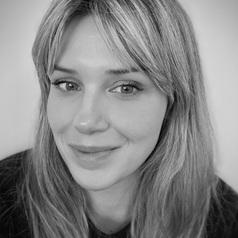
Rebecca Rhead
Lecturer in Society and Mental Health, King's College London
I am a Lecturer in Society and Mental Health at Institute of Psychiatry, Psychology & Neuroscience (IoPPN) at King's College London. I have a PhD in Social Statistics from the University of Manchester and years of experience applying quantitative methods to studying health inequalities in a variety of different settings. I have conducted research on HIV prevalence and treatment in Zimbabwe, the mental health and treatment needs of UK veterans, and most recently, ethnicity and health inequalities, particularly relating to healthcare.
Less ![]()

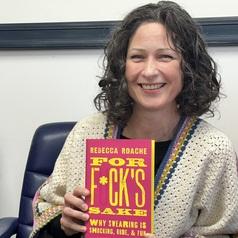
Rebecca Roache
Senior Lecturer in Philosophy, Royal Holloway University of London
I am a philosopher at the University of London and author of For F*ck's Sake: Why Swearing is Shocking, Rude, and Fun (Oxford University Press, 2023). I also host The Academic Imperfectionist podcast, which draws on the power of philosophy to help people dump perfectionism.
Less ![]()
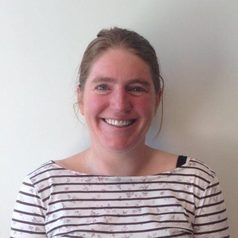
Rebecca Roberts
GIS Analyst, Centre for Urban Studies, RMIT University
Rebecca Roberts is a GIS Analyst with the Healthy Liveable Cities Group at the RMIT Centre for Urban Research.
Rebecca has worked as a GIS Analyst for nearly 15 years. She has a Bachelor of Forestry Science, a Bachelor of Science (with a major in Environmental Science) and a Masters in Geographic Information Technology. For more than 12 years she has been employed as a research fellow, and has used her skills as a GIS Analyst to calculate measures of the built environment to support population health research.
Prior to joining RMIT, Rebecca spent nearly 10 years at Deakin University, researching the influence of the built environment on population health. In 2013, Rebecca joined the Melbourne School of Population & Global Health, University of Melbourne, focusing her research on the development of spatial indicators for Community Indicators Victoria and the National Liveability Study.
Within the Healthy Liveable Cities Group, Rebecca contributes to the development of new GIS-based measures for the liveability research program and is responsible for setting up and running the appropriate GIS analyses, calculate the GIS-based measures and contribute to documentation and map creation. Rebecca’s daily tasks involve her working across several spatial and non-spatial databases, developing scripts to ensure data integrity and replication and develops online interactive maps for research dissemination.
Less ![]()
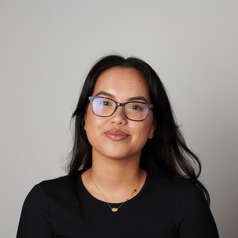
Rebecca Rothman
PhD Candidate in Clinical Psychology, School of Health Sciences, Swinburne University of Technology
Rebecca is a first year PhD (Clinical Psychology) candidate at Swinburne University of Technology. Her PhD research examines the relationship between negative affect/mood (i.e., anxiety, distress, depression) and alcohol hangover, as well as the functional impairments (i.e., reduced driving capabilities) associated with hangovers.
She also works as a research assistant with Summer Foundation in neurological disability research, specifically in co-design, housing, and well-being outcomes. Her previous research work also includes research in gambling disorders and other behavioural addictions at Deakin University.
Less ![]()
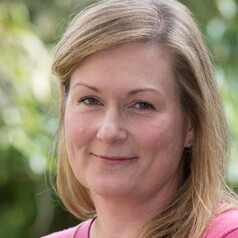
Rebecca Ryan
Senior Research Fellow, Health Practice and Management; Head, Centre for Health Communication and Participation, La Trobe University
Rebecca's background is in pharmacology and neuroscience. She has been a Research Fellow with the Cochrane Consumers and Communication Review Group since 2004, an Editor with the group since 2011, Deputy Coordinating Editor since 2013 and Coordinating Editor since January 2019. Her role currently includes writing and editing Cochrane reviews and developing guidance to support authors of Cochrane reviews. She is also Head of the Centre for Health Communication and Participation. Rebecca is also involved in research on methods of evidence synthesis and is currently leading reviews on communication at the end of life and communication to promote and support physical distancing measures for prevention and control of COVID-19.
Less ![]()

Rebecca Scott
Senior Lecturer in Marketing and Strategy, Cardiff University
ACADEMIC APPOINTMENTS
Lecturer in Marketing and Strategy Present
Cardiff Business School, Cardiff University
Assistant Visiting Professor of Marketing (Postdoc) Dec 2015
Eller College of Management, University of Arizona
EDUCATION
Ph.D., University of New South Wales, Australian School of Business Feb 2015 Major: Marketing
BSc Business Administration, University of Bath, School of Management May 2009 First Class Hons
RESEARCH INTERESTS
• Social and cultural aspects of marketing
• Experiential consumption
• Multisensory/embodied consumption
• Ethnographic/qualitative methods
Less ![]()
- Market Data





















